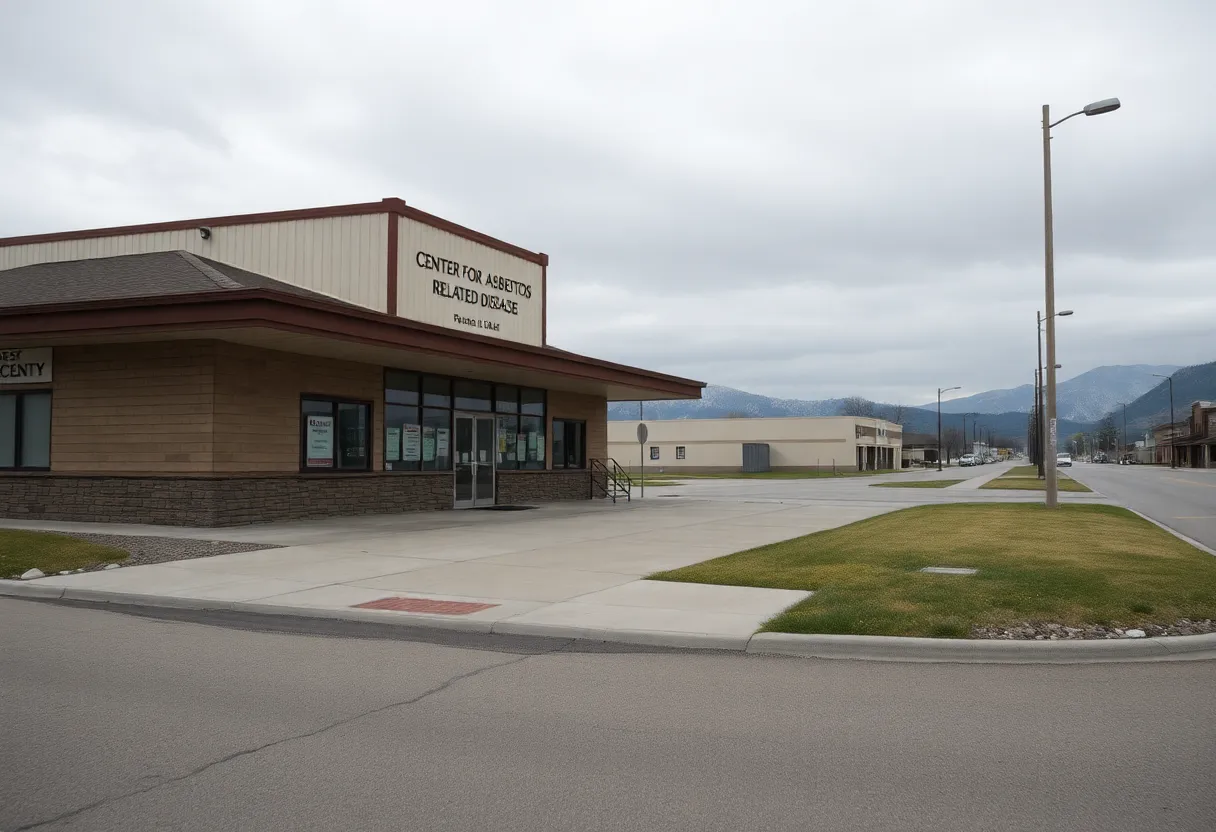News Summary
Libby, Montana faces a public health crisis as the Center for Asbestos Related Disease shuts down, following a legal defeat in a lawsuit brought by BNSF Railway.
Major Setback for Libby, Montana: Asbestos Screening Clinic Faces Closure
Residents Struggle as Cardinal Health Entity Shuts Down
Libby, Montana, a small town with a population of approximately 3,000 residents, is grappling with a significant public health crisis following a court-ordered closure of the Center for Asbestos Related Disease (CARD). This clinic has been a crucial health resource for the community, dedicated to screening and treating individuals affected by asbestos exposure stemming from the nearby vermiculite mine, notorious for its hazardous environmental impact. Now, in the wake of a contentious legal battle, the future of health screenings in this community hangs in the balance.
BNSF Railway’s Legal Victory
The closure arises from a lawsuit waged by BNSF Railway, which has been embroiled in controversy over its role in transporting contaminated materials linked to Libby’s deadly asbestos crisis. In a ruling earlier this year, BNSF won a lawsuit against CARD, accusing the clinic of fraudulent claims regarding patients’ eligibility for government health benefits. This judgment deemed over 2,000 diagnoses made by CARD as questionable, with 337 being outright rejected as false.
As part of the legal fallout, CARD was ordered to pay a staggering $6 million judgment. Furthermore, due to accumulated legal fees and costs, this amount increased to around $3.1 million. BNSF asserts that these financial troubles give it grounds to pursue recovery of the clinic’s assets, intensifying pressure on an already beleaguered healthcare institution.
A Community’s Health at Stake
Since its inception in 2000, CARD has served as the backbone for addressing asbestos-related health problems in Libby. For over two decades, the clinic has provided essential health screenings, medical monitoring, and treatment to those suffering from the devastating effects of asbestos exposure. It has operated largely under a federal grant from the Centers for Disease Control and Prevention, which accounted for 80% of its budget. The loss of this clinic now threatens public health in Libby, where residents are already facing the repercussions of decades of exposure to hazardous materials.
Executive Director Tracy McNew highlighted the severe implication of CARD’s closure, predicting that it will lead to a dramatic decline in asbestos health screenings historically available to locals, thereby exacerbating health risks in an already vulnerable community. The looming threat of not having access to proper medical screenings leaves many residents in a precarious position, exacerbating fears of undiagnosed illnesses stemming from their past exposures.
The Complexity of Legal and Medical Woes
In addition to the lawsuit from BNSF, CARD is facing allegations of medical malpractice and wrongful death related to the prescribing of opioid painkillers. This paints a picture of an institution struggling to maintain its purpose amidst growing scrutiny and legal pressures.
Initially separating from St. John’s Lutheran Hospital in 2003 and establishing itself as a non-profit by 2004, CARD was prompted to file for bankruptcy following the ruling in the fraud case. Despite this, they continued to operate under a bankruptcy settlement reached with the federal government that included stipulations involving BNSF. However, BNSF’s ongoing pursuit of assets through aggressive collection efforts has ruffled these arrangements, raising questions about the tribunal’s adherence to prior agreements.
The Legacy of Asbestos in Libby
The town of Libby has long been recognized as a critical site in the struggle against asbestos-related illnesses. In 2002, the Environmental Protection Agency (EPA) designated the area as a National Priorities List site due to the severe health risks posed by the former vermiculite mine operations. As Libby continues to confront this public health tragedy, the ramifications of the court’s directive over CARD mark a pivotal moment, with many residents left uncertain about their medical futures.
With its facilities now shuttered and financial stability crumbling, the fate of the Center for Asbestos Related Disease represents not only a loss of vital medical support but also a profound blow to the ongoing fight for justice and healing in a community scarred by the impacts of toxic exposure.
Deeper Dive: News & Info About This Topic
HERE Resources
Closure of Asbestos Clinic Sends Shockwaves Through Libby, Montana
Disaster Strikes LIBBY: Asbestos Screening Clinic SHUT DOWN Amid Legal Chaos
Bestwall LLC Appeals Bankruptcy Ruling in Asbestos Liability Case
Closure of Asbestos Help Clinic Shakes Small Montana Town
The Asbestos Crisis in Libby Takes a New Turn: CARD Faces Financial Ruin
The Closure of CARD: A Troubling Chapter for Libby’s Asbestos Victims
Asbestos Corporation Ltd. Faces Legal Turmoil Amidst Mesothelioma Allegations
Clinic Closure Sends Shockwaves Through Libby, Montana
Southern California Edison Faces Class Action After Fatal Eaton Fire
Closure of Libby’s Asbestos Screening Clinic Raises Public Health Concerns
Additional Resources
- ABC News: Asbestos Clinic Forced to Close in Montana Town
- Wikipedia: Asbestos
- CBS 42: Asbestos Clinic Forced to Close in Montana Town
- Google Search: Asbestos Exposure Health Risks
- The Western News: Libby’s CARD Clinic Closed Following Court Ruling
- Encyclopedia Britannica: Asbestos
- Ottumwa Courier: Asbestos Clinic Forced to Close in Montana Town
- Google News: Libby Montana Asbestos Clinic



















